Back to School Bonanza | Saturday, August 10, 9–2

Back to School Bonanza | Saturday, August 10, 9–2

By Alix Tonsgard, MS, Early Learning Specialist, DuPage Children’s Museum
Even though my daily commute has temporarily been eliminated, the number of trips that I need to make to the grocery store on a weekly basis has decreased, and just the fact that I am practically always home, the days still seem to fly by and the pace of life within the house feels fast and, at times, chaotic. I am sure this is something many of you can relate to. We are still plugging along figuring out how to juggle my work meetings and projects with my partner’s work responsibilities and keeping the others in the household busy, fed, and, well, generally not neglected.
The teenagers moan and groan and are exhausting in their own way, but they are better equipped with tools to take care of and entertain themselves than the littlest one in the house. This past month I had yet another moment where I realized that things I would preach to the parents of children in my class when I was a teacher and that I myself put into practice daily in my classroom, were not happening in my household. You see, in our efforts to get from one meeting to the next while preparing meals and setting up waterplay in the backyard or an art activity in the kitchen, all as fast as possible, we were living in the world of ‘no’ and this world was making everyone stressed.
While it might seem that you are moving at a faster pace by saying ‘no’ and trying to do everything yourself, the frustrated child who is now having a meltdown at your feet because all they want to do is help, is now not only slowing you down, but also potentially stressing you out and making you flustered as you transition into your next meeting.
In an effort to create more of a ‘yes’ environment, we have slowed down our pace a bit and built in more opportunities for our little guy to help do big jobs. Big jobs are not the same as chores. Big jobs are things that children are intrinsically motivated to do because they want to help, and that is an important distinction.
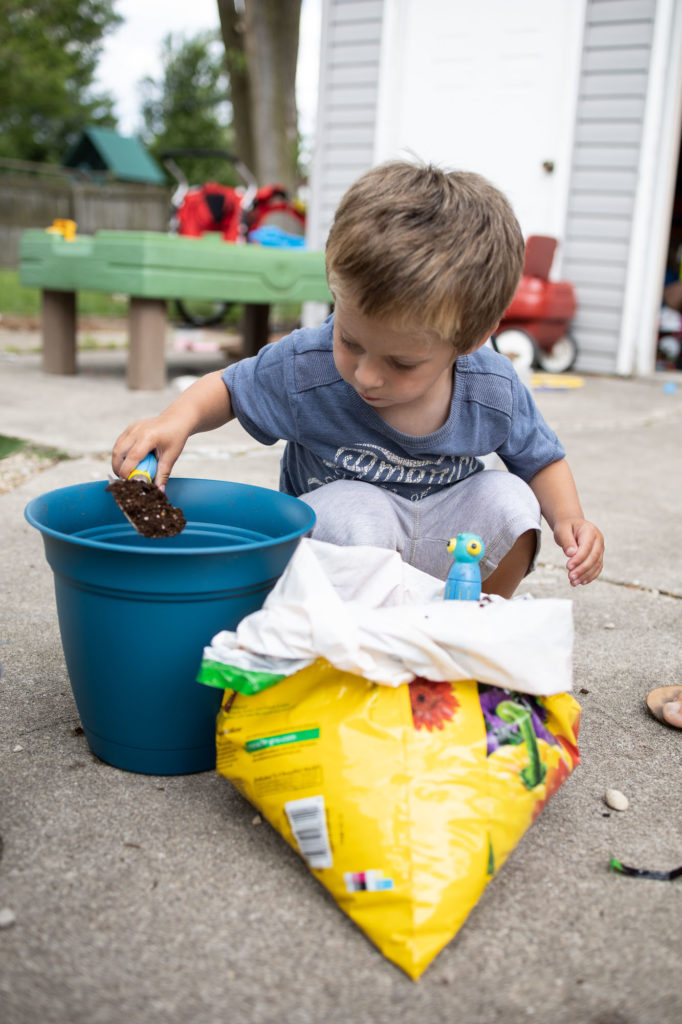
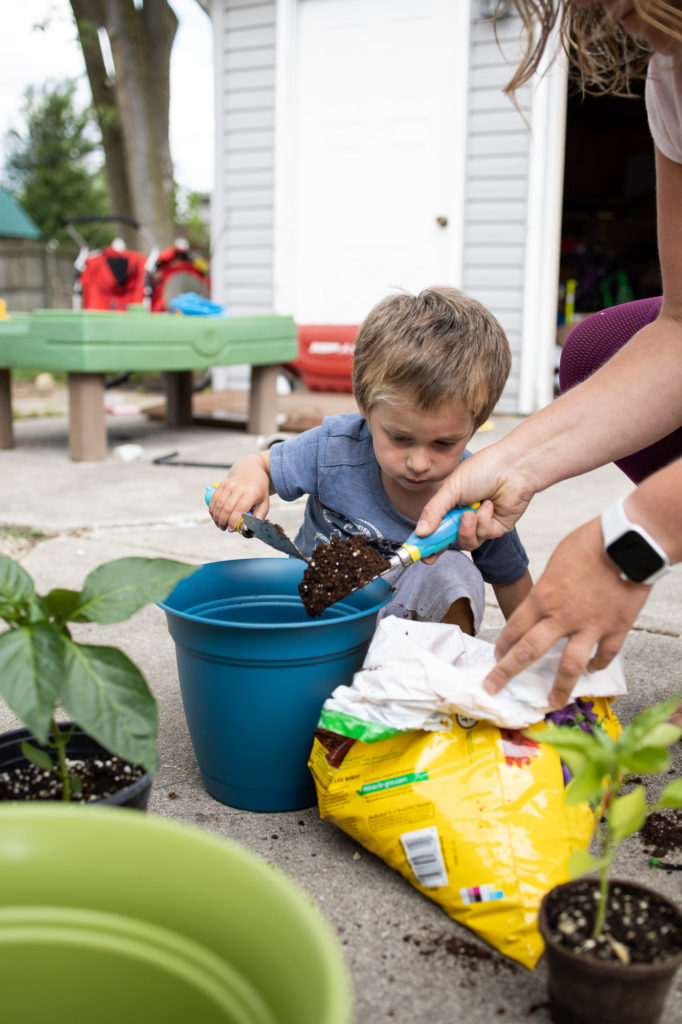
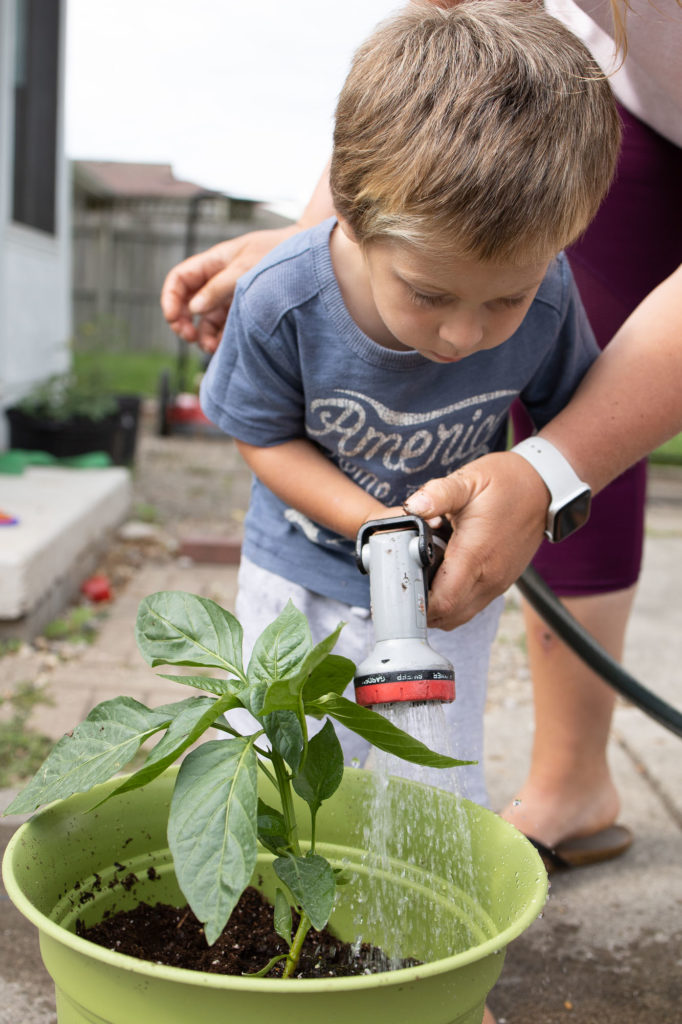
Young children love to help, and letting them help supports their social emotional as well as physical development. In addition, these jobs often involve math and science even if that is not their intention! By giving them jobs to do in these instances, you are communicating a deep level of respect for them and what they are capable of. You are supporting the development of a positive self-concept by showing them that you trust them to do important things. Big jobs also build a child’s sense of community when you give them tasks that contribute to caring for the family such as chopping vegetables for dinner.
Make sure you have the tools needed to support your little one in helping. In general, I advocate for helping children learn to use real tools, but at an early age they will need a little extra support to do their jobs successfully. You will need to teach your child to use these tools and provide guidance until they have mastered this new skill. Try to be consistent in the language you use around the tool to help them remember. For example, when we chop vegetables, we always talk about using our helper hand to hold the vegetable steady and our cutting hand to chop.
Other tips – Talk to your child while they are working about what they are doing. These conversations are rich in learning opportunities as children work to master new ideas.
Don’t forget to express your appreciation. There’s no need to go over the top. Simply state, “Thank you for pulling the weeds with me. It really helped me and now our plants have more room to grow. I really like it when we work together to take care of our garden.”
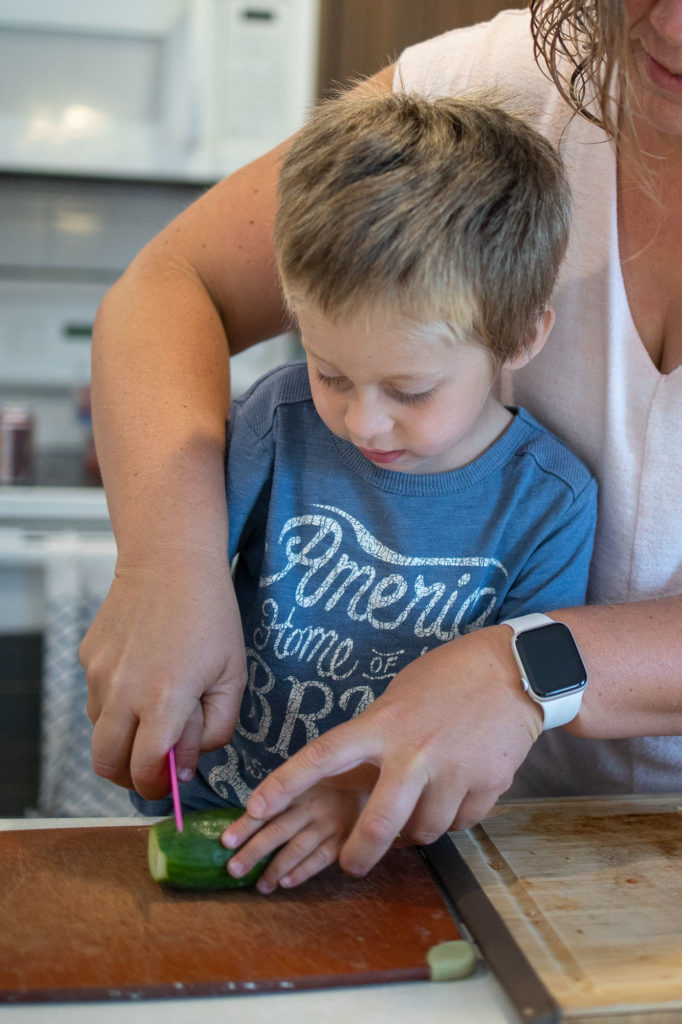
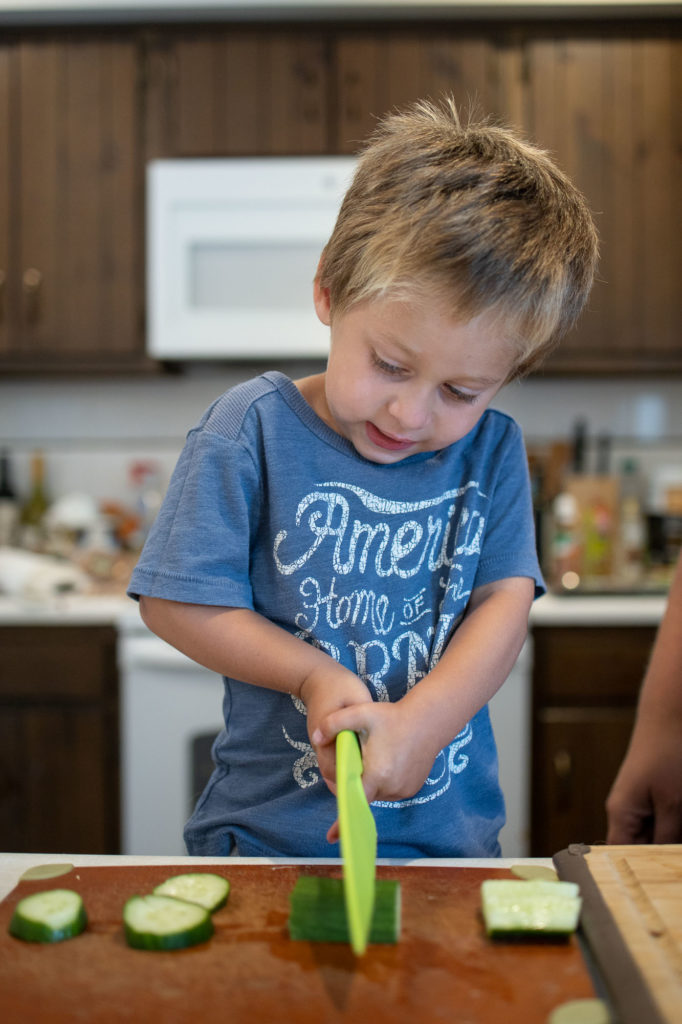
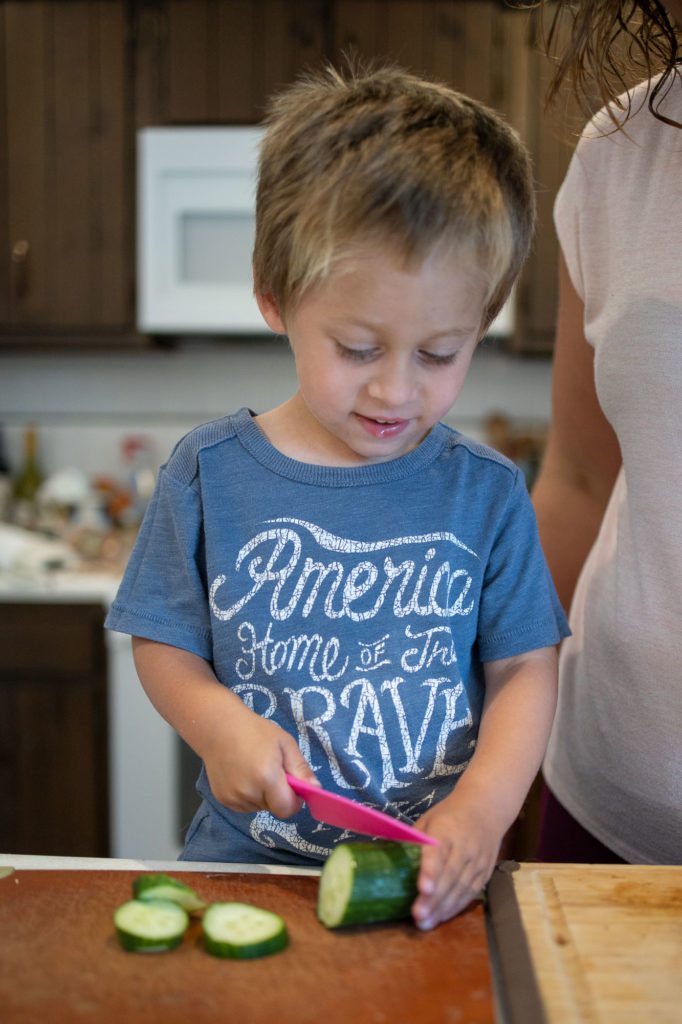
I am not going to say that big jobs have solved all of our daily power struggles (he’s two and a half years old; we expect life to be a rollercoaster), but our consistency in letting him help, especially in transition times, gives him a sense of being in control. He takes pride in his ability to help but also is excited about the opportunity to work on mastering a new skill.
So try this: find one part of your day where you can slow down and be in the moment with your child. Preparing dinner has become that time for me. I invite him to the kitchen, pull his stool to the counter, and even if I have nothing for him to chop, I give him his knife and a cucumber while I work on dinner. I’ll be honest, it doesn’t happen every day, and those days feel rushed and stressful. On the days that we work alongside each other, not only can I breathe and enjoy the calm, but I can see him growing and learning. These moments I will cherish always.
——————————————–
About Alix
Alix Tonsgard is the Early Learning Specialist at DuPage Children’s Museum. She holds an MS in Child Development from the Erikson Institute. Acting as the Museum’s advocate for early childhood development and learning, she ensures that the latest research in Early Childhood Education is represented in all Museum exhibits, professional development initiatives, and public programs.

